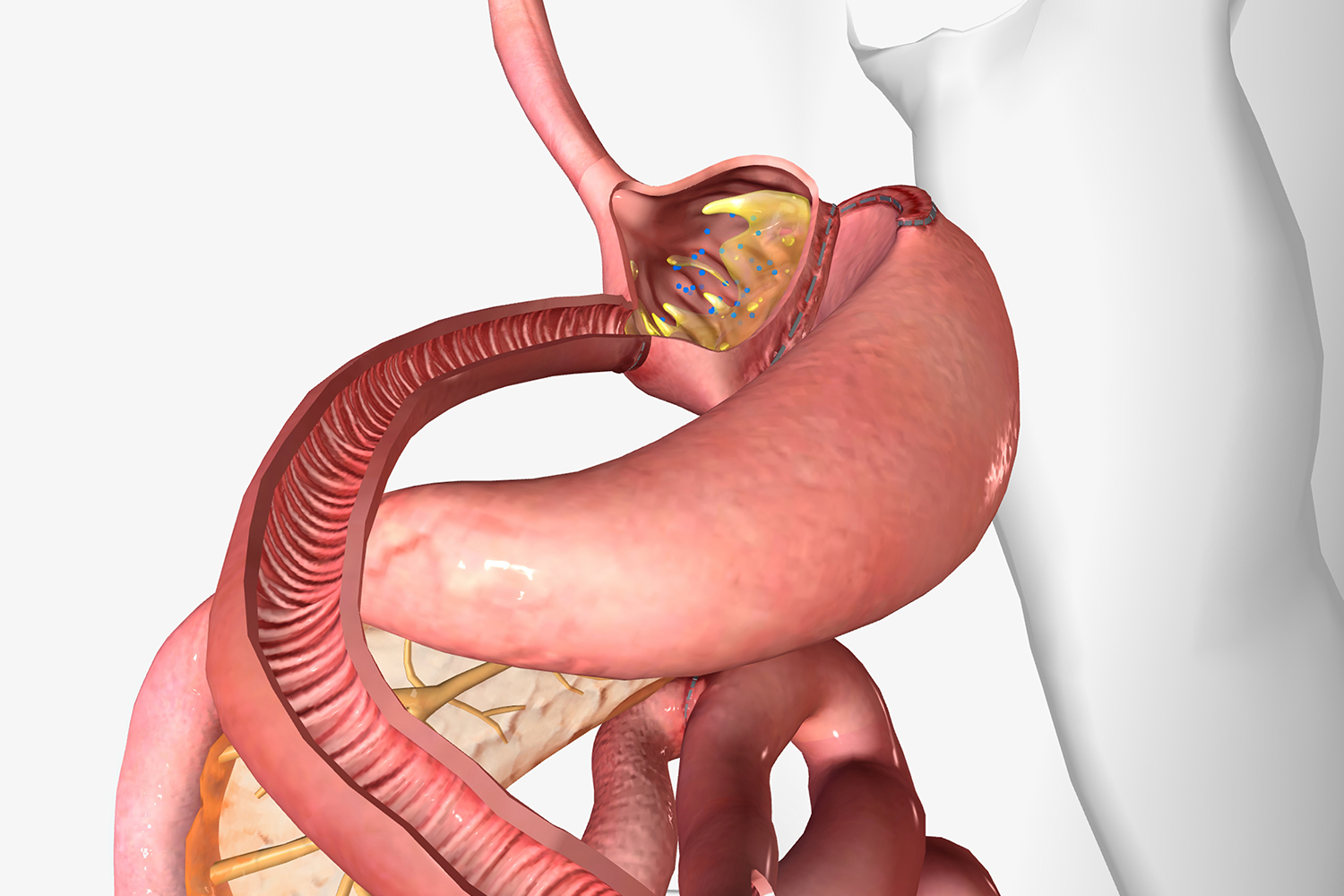Overview
For individuals struggling with severe obesity and its associated health risks, traditional weight loss methods often fall short of providing sustainable solutions. In such cases, gastric bypass surgery emerges as a powerful intervention, offering a path to significant weight loss and improved metabolic health. Let’s delve into the world of gastric bypass surgery, backed by research and facts.

Understanding Gastric Bypass Surgery
Gastric bypass surgery involves restructuring the digestive system to promote weight loss. During the procedure, a small pouch is created at the top of the stomach, restricting food intake. This pouch is then connected directly to the small intestine, bypassing a portion of the stomach and duodenum.
Efficacy and Long-Term Outcomes
Research spanning decades has demonstrated the effectiveness of gastric bypass surgery in achieving substantial and sustained weight loss. A landmark study published in the New England Journal of Medicine followed individuals who underwent gastric bypass surgery over a 12-year period. The findings revealed an average weight loss of approximately 25% of initial body weight, with significant improvements in obesity-related comorbidities such as type 2 diabetes, hypertension, and obstructive sleep apnea.
Moreover, research indicates that gastric bypass surgery elicits favorable changes in metabolic parameters beyond weight loss alone. A study published in Diabetes Care reported significant reductions in insulin resistance and glycemic control among patients with type 2 diabetes following gastric bypass surgery. These metabolic improvements often translate into reduced reliance on diabetes medications and a lower risk of long-term complications.
Mechanisms of Action: Unraveling the Science
The success of gastric bypass surgery can be attributed to its multifaceted impact on physiological processes regulating appetite, metabolism, and nutrient absorption. By altering the anatomy of the gastrointestinal tract, gastric bypass surgery modulates hormonal signals involved in hunger and satiety, leading to decreased food intake and enhanced feelings of fullness.
Furthermore, the bypassed segment of the intestine experiences reduced exposure to nutrients, resulting in altered nutrient sensing and hormonal secretion. This phenomenon, known as the “foregut hypothesis,” has been proposed to contribute to the metabolic benefits observed post-surgery, including improvements in insulin sensitivity and glucose metabolism.
Patient-Centered Care: Navigating the Journey
While gastric bypass surgery offers profound benefits, it is essential to recognize that it is not a one-size-fits-all solution. Patient selection, comprehensive preoperative evaluation, and multidisciplinary support are integral components of successful outcomes. Research underscores the importance of preoperative counseling and postoperative follow-up in optimizing long-term weight loss maintenance and minimizing potential complications.
Moreover, ongoing research efforts continue to refine surgical techniques and enhance patient outcomes. Emerging approaches, such as laparoscopic and robotic-assisted procedures, aim to improve surgical precision and minimize invasiveness, thereby reducing recovery times and enhancing patient satisfaction.



